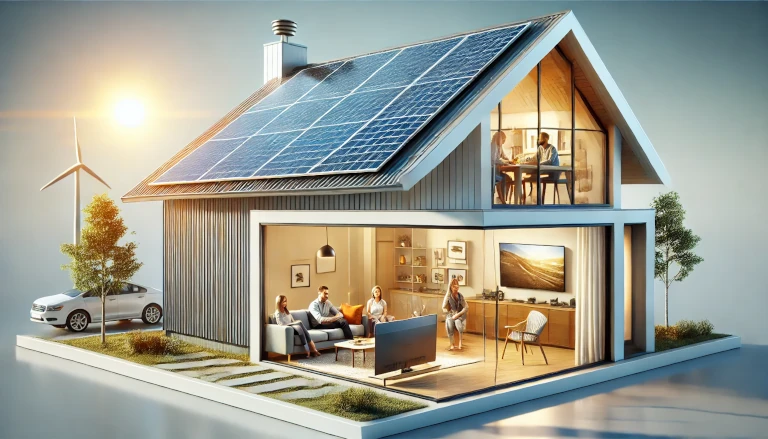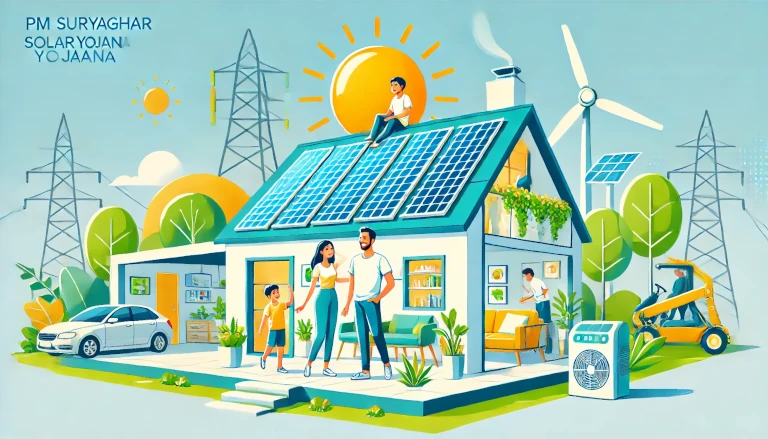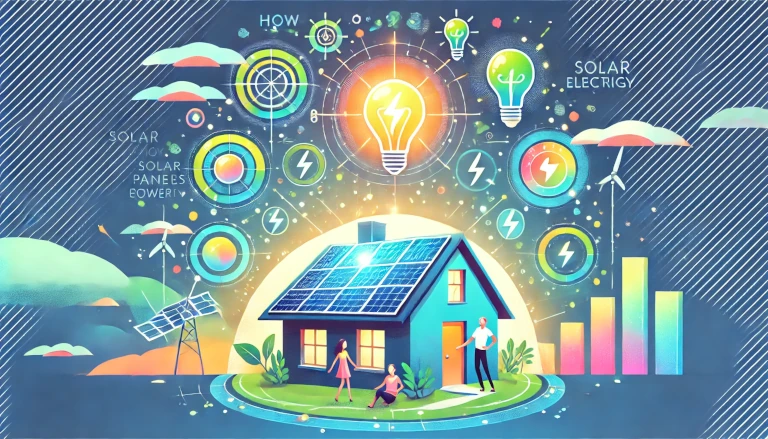As the cost of electricity continues to rise, many homeowners are turning to solar panels to reduce their bills and contribute to a greener planet. But why should you consider solar panels for your home? How do they work, and are they worth the investment? This guide provides a comprehensive overview of solar panels for home use, including their advantages, disadvantages, and cost benefits.
Why Choose Solar Panels for Your Home? 🌍
Solar panels are a practical and eco-friendly choice for residential power generation. Here are a few reasons why you might consider installing solar panels on your home:
- Lower Energy Bills: By generating your own electricity, you can significantly reduce or even eliminate your monthly power bills.
- Environmental Impact: Solar energy is a clean, renewable power source that helps reduce carbon emissions and air pollution.
- Energy Independence: Solar panels provide a degree of independence from the grid, ensuring you have power during outages or emergencies.
- Increase in Property Value: Homes with solar panels often have a higher resale value and are more attractive to eco-conscious buyers.
How Do Solar Panels Work on a Home? 🔋
Here’s a simple breakdown of how home solar panel systems function:
- Sunlight Absorption: Solar panels installed on the roof capture sunlight and convert it into direct current (DC) electricity.
- Inverter Conversion: The DC electricity is sent to an inverter, which converts it into alternating current (AC), making it suitable for household appliances.
- Power Usage or Storage: The AC electricity can either be used immediately to power your home or stored in a battery for later use.
This process allows homeowners to generate and utilize clean energy, making their homes more sustainable and cost-effective over time.
What Are the Costs of Solar Panels for Home? 💸
The cost of solar panels for home use varies depending on system size, quality, and installation requirements. In general, prices for residential solar panel systems range from ₹40,000 to ₹70,000 per kW, with typical systems falling between 1kW and 10kW in size.
For example:
- 2kW System: ₹80,000 – ₹1,40,000
- 5kW System: ₹2,00,000 – ₹3,50,000
- 10kW System: ₹4,00,000 – ₹7,00,000
The total cost may be affected by factors such as the type of panels used (monocrystalline vs. polycrystalline), installation location, and any additional components like batteries.
Where Can You Install Solar Panels on a Home? 🏠
Most residential solar panels are installed on rooftops, which typically offer:
- Optimal Sun Exposure: Roof installations capture the most sunlight throughout the day.
- Efficient Use of Space: Installing panels on the roof saves yard space, making it ideal for homes with limited land.
- Enhanced Aesthetics: Rooftop solar installations can be integrated into the roof design, creating a clean and modern look.
Alternatively, ground-mounted solar panels can be used if your roof isn’t suitable due to shading or insufficient space.
What Are the Advantages and Disadvantages of Home Solar Panels? 📈📉
Advantages:
- Long-Term Savings: Solar panels can drastically reduce electricity costs, providing substantial savings over their lifespan.
- Low Maintenance: Once installed, solar panels require minimal maintenance and are generally reliable for 25 years or more.
- Government Incentives: In India, various subsidies and incentives are available for residential solar installations, making them more affordable.
Disadvantages:
- High Initial Cost: The upfront cost can be significant, although prices have dropped in recent years.
- Weather Dependent: Solar panels generate less energy on cloudy days and none at night, potentially requiring a backup system.
- Space Requirements: Systems like 5kW or larger may require considerable roof space, which might not be available on all homes.
How Much Can You Save with Solar Panels? 💰
The amount you save depends on your electricity usage and system size. For example, a 5kW solar panel system can save a homeowner ₹6,000 to ₹8,000 per month. Over a 25-year lifespan, this adds up to ₹18,00,000 – ₹24,00,000 in savings, making solar panels a financially sound investment.
When is the Best Time to Install Solar Panels for Home Use? 🕒
The best time to install solar panels is during the dry season, as installations are more efficient without the risk of rain. Additionally, installing before peak summer can help you maximize savings on electricity bills when energy consumption is higher.
What Are the Cost Benefits of Different Solar Panel Systems for Home? 🏷️
Understanding the cost benefits of different system sizes can help you make an informed decision:
- 1-2kW Systems: Ideal for small homes with limited energy needs, saving around ₹2,000 – ₹3,000 monthly.
- 3-5kW Systems: Suitable for medium-sized homes, offering a balance of cost and savings with monthly savings of ₹4,000 – ₹8,000.
- 6-10kW Systems: Great for larger homes with higher energy usage, potentially saving ₹9,000 – ₹15,000 or more per month.
For instance, while a 5kW system has a higher upfront cost, it often provides the best return on investment for medium to large households.
How to Choose the Right Solar Panel System for Your Home? 📋
Consider the following factors when choosing a solar panel system:
- Electricity Usage: Calculate your monthly energy consumption and choose a system size that meets your needs.
- Roof Space: Ensure you have enough roof space to accommodate the solar panels, especially for larger systems.
- Budget and Incentives: Research available subsidies and financing options to find the best fit for your budget.
- Future Energy Needs: If you plan on adding appliances or expanding your home, consider a larger system to cover future energy needs.
Installing solar panels at home is a wise decision for those looking to reduce their energy costs and contribute to a greener future. With the right system size, you can enjoy significant long-term savings while minimizing your environmental impact. As solar technology becomes more affordable and accessible, now is an excellent time to explore this sustainable energy option for your home.
Discover more from Green Ecosystem - Renewable Energy, Agriculture, and Environmental Sustainability
Subscribe to get the latest posts sent to your email.


